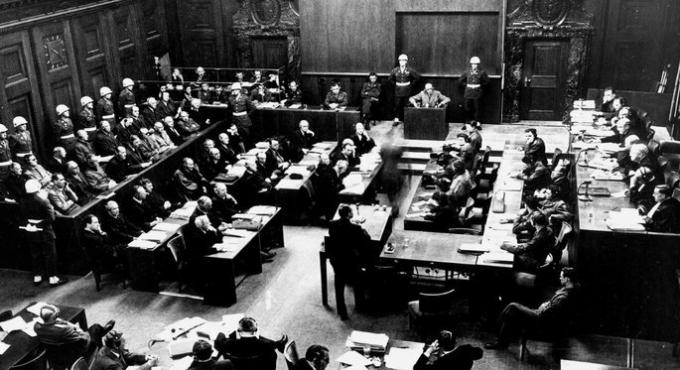The history of mankind is a history of conflict. From antiquity to the present day, many lives were lost, cities were destroyed and countless economic and political losses were left to populations as a result of wars.
But the characteristics of conflicts can vary according to motivations, scope, weapons used, etc.
Here are some types of wars common in our history:
Nuclear war
Nuclear wars are conflicts in which nuclear weapons are used. Nuclear weapons have a destructive effect on a large scale and are the result of the fusion or fission of atoms. They are capable of releasing a large amount of energy, with small amounts of matter.
Nuclear weapons can be atomic bombs, which are derived from uranium-235 and plutonium, and hydrogen bombs, made from the fusion of hydrogen atoms. The hydrogen bomb is more powerful than the atomic bomb.
The only nuclear weapons used in conflicts were bombs dropped on Japanese cities of Hiroshima and Nagasaki at the end of World War II.
In addition to the numerous consequences to people and the environment resulting from the radioactive material released in the explosion, it is believed that more than 200,000 people died in these attacks.
A nuclear war, in fact, never happened, but if it did, the consequences would be catastrophic. It is even considered that a nuclear war could lead to the extinction of human life on planet Earth.
Civil war
Civil wars are conflicts that occur within a country, among different organized groups. Disputes can arise from political, economic, religious causes - like any other war - and even the separation of parts of the country.
Throughout history, several countries have suffered civil wars. An example that illustrates this type of conflict well is the Civil War of the United States (1861-1965), which was a dispute between groups in the north and south of the country.
The north wanted to end the slavery regime and the south wanted to continue with this model.
Brazil was also the scene of civil wars, one of which was that of Canudos (1896-1897). This conflict took place in the backlands of Bahia and was motivated by the end of social injustices and tax collection - this region was marked by great poverty and precarious living conditions.
know more about civil war.
biological warfare
Biological warfare is a conflict in which biological agents as a weapon. These agents can be viruses, bacteria and fungi and are used with the intention of killing or making the opponents ill. They can be spread in various ways, such as by contact through air and water.
Biological weapons were used more frequently in antiquity. Historical records show that decaying bodies and poisons were often used to contaminate water sources.
The most recent and proven example of the use of biological weapons were tests carried out by Japan during World War II, which contaminated around 600,000 Chinese.
In 1972, the Biological Weapons Convention was signed in Washington by several countries, but some nations are believed to keep biological weapons stockpiles secret.
chemical warfare
Chemical wars are conflicts in which chemical substances are used to target the enemy. An example of a chemical weapon is mustard gas, used during the First World War (1914-1918).
This gas causes skin burns, temporary or permanent blindness, and can cause serious lung damage to those who aspire to it.
One of the most dangerous chemical agents is organophosphates, which cause seizures or death when they come into contact with the skin, even in small amounts. Because they are weapons that produce terrible sufferings and being easily transported by air have been a concern of the international community for decades.
One of the most important measures to prevent these types of substances in wars was the Chemical Weapons Convention, signed in Paris in 1993 and which entered into force in 1997. Despite this, there are suspicions of recent uses of chemical weapons, for example in Syria, in 2018.
Saint war
Holy wars are conflicts with religious motivations, performed by monotheistic religions - that believe in the existence of only one god.
Extremist adherents of these religious currents see followers of other faiths as enemies and try to impose their belief and expand their influence in the territories through wars saints.
The two greatest holy wars in history were promoted by Islam and Christianity.
Also called jihad, the Muslims' holy war aims to spread Islam.
The Crusades, the name given to the holy wars promoted by the Catholic Church, sought to reconquer the holy city of Jerusalem, which was under Muslim rule.
know more aboutJihad and Saint war.
Guerrilla war
The term "guerrilla" began to be used in Spain when guerrilla groups were formed to fight the invasion of Napoleon Bonaparte's troops, between 1808 and 1812.
Guerrillas are armed groups that form to seek independence from regions, fight the government or occupations. Guerrillas generally have a political-ideological bias, but they are not exclusive to one position or another, and are characterized by the mobility of combatants.
During the 20th century, in Latin America and even in Brazil, guerrillas emerged that fought against the dictatorial regimes imposed in the region.
World War
World wars are conflicts involving different countries in different regions of the world. They may be aimed at world leadership or they may be the result of several simultaneous conflicts.
In antiquity, wars were located in geographically limited regions, there were no instruments highly developed weapons, nor means of transport for combatants to reach territories distant.
In the Middle Ages, conflicts occurred in larger regions, several of them made possible by the Crusades made by the Catholic Church. The Crusades were military movements that left Western Europe towards Jerusalem, with the intention of conquering the Holy Land, which belonged to the Muslims at that time.
The concept of World War, which deals with the two great conflicts that occurred in this area, refers to a phenomenon of the Modern Age and was only possible thanks to Globalization. From that moment on, the weapons of war became more powerful and capable of reaching long distances.
Wars are now called global in a globalized world, because the interdependence between nations causes a large part of the countries of the world to be affected - even if they do not actively participate in the conflict.
See also the meaning of cold War and globalization and meet 7 landmark events of the second world war.



